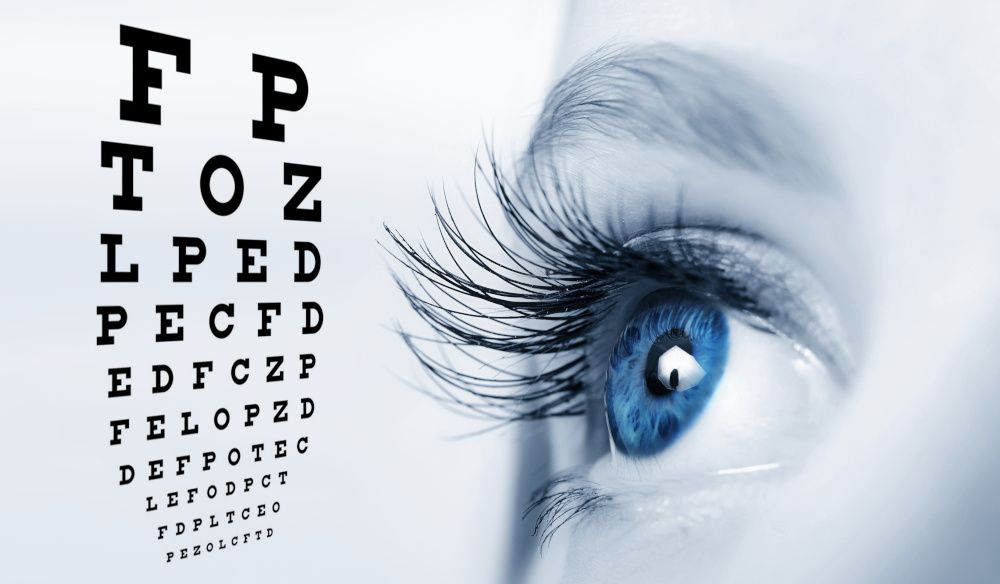Introduction
Macular degeneration, also known as age-related macular degeneration (AMD), is a leading cause of vision loss in adults over 50. This condition affects the macula, the central part of the retina, responsible for sharp and clear vision. As it progresses, AMD can make daily activities like reading, driving, and recognizing faces increasingly difficult. While there is no cure, proper sight care can help slow its progression and support eye health. This guide explores the best strategies, including diet, lifestyle adjustments, supplements, and medical treatments, to support vision and improve quality of life for those with macular degeneration.
Understanding Macular Degeneration
Types of Macular Degeneration
Macular degeneration comes in two primary forms:
- Dry AMD – The most common type, affecting about 80-90% of AMD cases. It is characterized by the gradual thinning of the macula and the accumulation of drusen (yellow deposits) under the retina.
- Wet AMD – Less common but more severe. This form occurs when abnormal blood vessels grow under the retina and leak fluid or blood, causing rapid vision loss.
Key Risk Factors for Macular Degeneration
Several factors contribute to the development of AMD, including:
- Age – People over 50 are at greater risk.
- Genetics – A family history of AMD increases susceptibility.
- Smoking – Doubles the risk of developing AMD.
- High Blood Pressure – Affects circulation, leading to eye health issues.
- Obesity – Increases the likelihood of advanced AMD.
- Poor Diet – A lack of essential nutrients can contribute to eye deterioration.
- Excessive UV Exposure – Prolonged exposure to harmful ultraviolet rays may damage the retina.
Essential Sight Care Strategies for Macular Degeneration Support
1. Nutritional Support for Eye Health
A nutrient-rich diet is essential for slowing AMD progression. Key vitamins and minerals for eye health include:
- Lutein and Zeaxanthin – Found in leafy greens like spinach and kale, these antioxidants protect the macula from oxidative stress.
- Vitamin C – Present in citrus fruits, bell peppers, and broccoli, it helps reduce free radical damage.
- Vitamin E – Found in nuts, seeds, and green leafy vegetables, this antioxidant supports overall eye health.
- Zinc – Essential for retinal function, available in meats, shellfish, and legumes.
- Omega-3 Fatty Acids – Found in fatty fish (salmon, mackerel), these help maintain healthy retinal cells.
- Beta-Carotene – Present in carrots, sweet potatoes, and pumpkins, it supports good vision.
2. Dietary Recommendations
A balanced diet based on the Mediterranean model has been linked to a lower risk of AMD. It includes:
- Leafy greens (spinach, kale, collards)
- Bright-colored fruits and vegetables (carrots, peppers, blueberries)
- Fatty fish (salmon, sardines, trout)
- Nuts and seeds (almonds, walnuts, chia seeds)
- Whole grains (quinoa, brown rice, whole wheat bread)
- Legumes (lentils, beans, chickpeas)
3. Eye Health Supplements
Many individuals with AMD benefit from specialized eye health supplements containing:
- AREDS2 formula – A clinically tested combination of vitamins C and E, zinc, copper, lutein, and zeaxanthin.
- Fish oil supplements – To ensure adequate omega-3 intake.
- Bilberry extract – Rich in antioxidants that support retinal health.
4. Lifestyle Adjustments for Better Eye Care
- Quit Smoking – Reduces oxidative stress on the retina.
- Manage Blood Pressure & Cholesterol – Prevents damage to the blood vessels in the eyes.
- Wear UV-Protective Sunglasses – Shields eyes from harmful UV rays.
- Maintain a Healthy Weight – Reduces inflammation and improves circulation.
- Exercise Regularly – Enhances blood flow and oxygen delivery to the eyes.
- Reduce Screen Time – Avoid excessive blue light exposure from digital screens.
5. Medical Treatments for Advanced AMD
For individuals with severe AMD, medical intervention may be necessary. Treatment options include:
- Anti-VEGF Injections – Medications like Lucentis, Eylea, and Avastin slow abnormal blood vessel growth in wet AMD.
- Laser Therapy – Used to destroy leaking blood vessels in wet AMD cases.
- Photodynamic Therapy (PDT) – A combination of laser and drug treatment that helps prevent vision loss.
6. Assistive Devices and Vision Rehabilitation
For those experiencing significant vision loss, adaptive devices can enhance independence:
- Magnifying Glasses and Screen Readers – Aid in reading and everyday tasks.
- Large-Print Books and Audio Books – Provide easier access to reading materials.
- Talking Clocks and Voice-Activated Devices – Help manage daily activities.
- Orientation and Mobility Training – Helps individuals navigate their environment safely.
Frequently Asked Questions (FAQs)
1. Can macular degeneration be reversed? No, but early detection and proper care can slow its progression and preserve vision.
2. Is AMD hereditary? Yes, genetics play a role, but lifestyle choices significantly impact risk levels.
3. What foods should I avoid with AMD? Avoid processed foods, excessive sugar, trans fats, and high-sodium diets.
4. Are there any natural remedies for AMD? While no cure exists, a diet rich in antioxidants, quitting smoking, and protecting the eyes from UV light can help.
5. What are the early signs of AMD? Blurry vision, difficulty reading, and seeing distorted or wavy lines are common early symptoms.
Conclusion
Macular degeneration is a progressive condition, but with proper sight care, individuals can slow its advancement and maintain a high quality of life. Prioritizing a nutrient-rich diet, taking eye health supplements, adopting a healthy lifestyle, and seeking medical treatment when necessary are crucial steps in managing AMD. By implementing these strategies, individuals can support their vision and continue to engage in daily activities with greater ease and confidence.








Leave a Reply